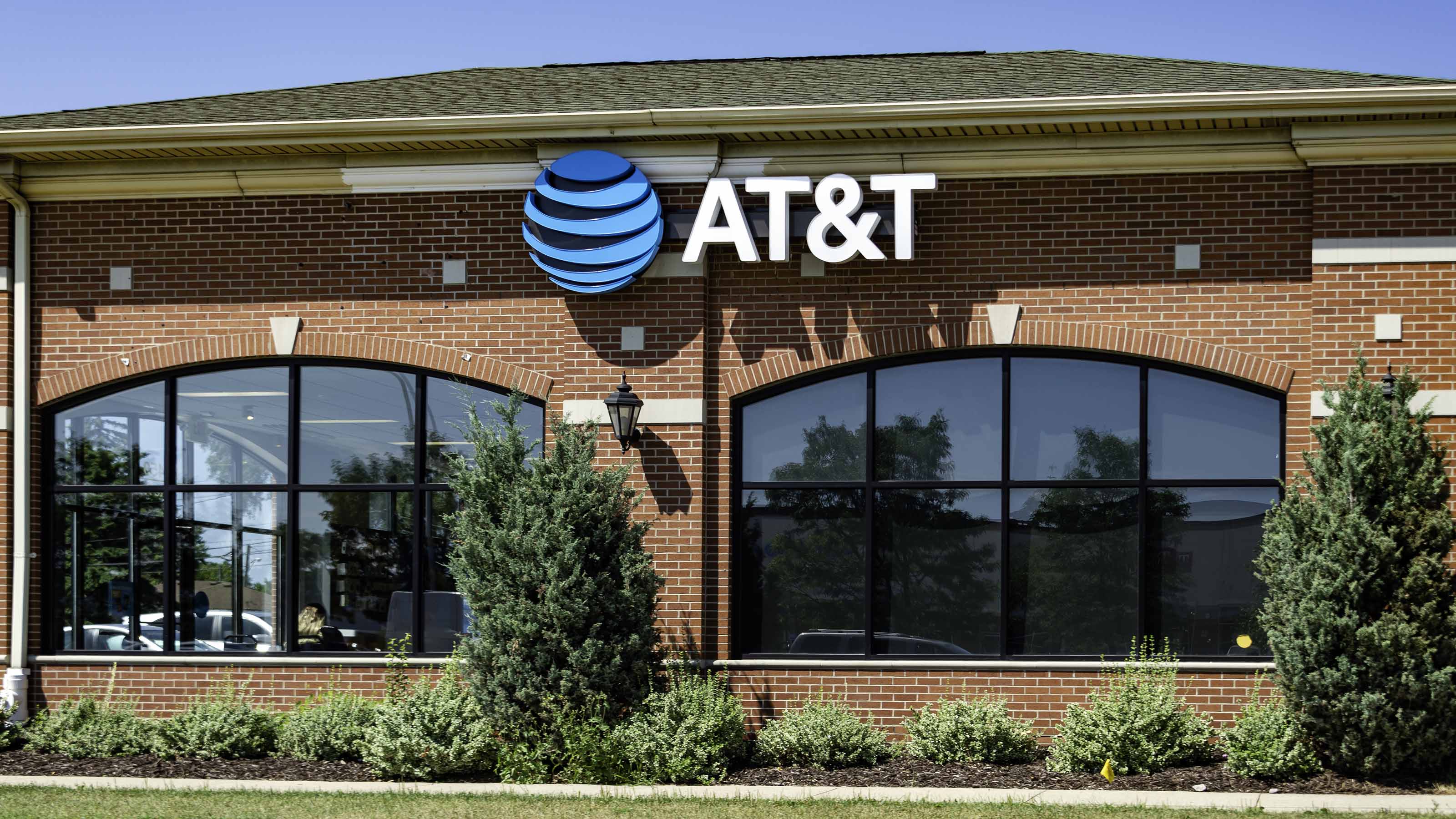What AT&T's WarnerMedia Spinoff Means for Your Dividends
AT&T and Discovery's major M&A deal includes a cut to T's generous dividend payment.


Profit and prosper with the best of Kiplinger's advice on investing, taxes, retirement, personal finance and much more. Delivered daily. Enter your email in the box and click Sign Me Up.
You are now subscribed
Your newsletter sign-up was successful
Want to add more newsletters?

Delivered daily
Kiplinger Today
Profit and prosper with the best of Kiplinger's advice on investing, taxes, retirement, personal finance and much more delivered daily. Smart money moves start here.

Sent five days a week
Kiplinger A Step Ahead
Get practical help to make better financial decisions in your everyday life, from spending to savings on top deals.

Delivered daily
Kiplinger Closing Bell
Get today's biggest financial and investing headlines delivered to your inbox every day the U.S. stock market is open.

Sent twice a week
Kiplinger Adviser Intel
Financial pros across the country share best practices and fresh tactics to preserve and grow your wealth.

Delivered weekly
Kiplinger Tax Tips
Trim your federal and state tax bills with practical tax-planning and tax-cutting strategies.

Sent twice a week
Kiplinger Retirement Tips
Your twice-a-week guide to planning and enjoying a financially secure and richly rewarding retirement

Sent bimonthly.
Kiplinger Adviser Angle
Insights for advisers, wealth managers and other financial professionals.

Sent twice a week
Kiplinger Investing Weekly
Your twice-a-week roundup of promising stocks, funds, companies and industries you should consider, ones you should avoid, and why.

Sent weekly for six weeks
Kiplinger Invest for Retirement
Your step-by-step six-part series on how to invest for retirement, from devising a successful strategy to exactly which investments to choose.
Shareholders in AT&T (T, $32.24) aren’t quite sure just how to react to Monday's news that the company would essentially undo its $85 billion acquisition of Time Warner – a deal that was widely criticized when it closed in 2018.
Indeed, shares in the blue-chip telecommunications giant popped as much as 4.8% at one point in Monday's early trading. However, those gains were pared back significantly by the early afternoon.
Income investors who have come to count on AT&T's generous dividend (currently yielding 6.5%) might want to hold their applause, however.
From just $107.88 $24.99 for Kiplinger Personal Finance
Become a smarter, better informed investor. Subscribe from just $107.88 $24.99, plus get up to 4 Special Issues

Sign up for Kiplinger’s Free Newsletters
Profit and prosper with the best of expert advice on investing, taxes, retirement, personal finance and more - straight to your e-mail.
Profit and prosper with the best of expert advice - straight to your e-mail.
AT&T signaled that it will cut its dividend to reflect the company's smaller size once it spins off its media business into a separate entity.
Based on what shareholders get out of the deal, that’s not necessarily a bad thing. But it does make it all the more important for current and prospective T shareholders to understand the ins and outs of this pending deal, and AT&T's new place in the streaming video wars.
The AT&T-WarnerMedia-Discovery Deal
AT&T and Discovery Communications (DISCA, $35.65) rocked the communications industry before Monday’s opening bell by announcing a mega-deal that would combine their formidable cable and streaming media assets.
AT&T, which says it expects to receive $43 billion between cash and securities in the deal, will spin off WarnerMedia properties such as HBO, CNN, TNT, TBS and Warner Bros Studios. Those properties will combine with Discovery assets such as Food Network, Animal Planet and HGTV to form a new publicly traded company. The as-yet-to-be-named media firm will also own streaming media assets HBO Max and the newly launched Discovery+.
T and DISCA hope that the resulting entity will possess the scale and resources to compete with the likes of Netflix (NFLX) and Walt Disney (DIS) in the rapidly expanding streaming media business.
The new company – which is expected to be formed by mid-2022 – will have some catching up to do. HBO Max and HBO combined have about 44 million U.S. subscribers. Discovery+ has roughly 15 million subscribers. Meanwhile, Netflix has more than 200 million global subscribers, and Disney+ has more than 100 million.
But back to AT&T.
Why Is the Dividend Getting Cut?
AT&T said it expects an annual dividend payout ratio of 40% to 43% from more than $20 billion of expected free cash flow. That implies a total payout of between $8 billion and $8.6 billion.
That would represent a steep drop from the $15 billion AT&T paid in dividends in 2020, when free cash flow – or the cash left over after operating costs and capital investments – came to more than $40 million. Morgan Stanley analyst Simon Flannery points out that it would mark "a nearly 50% reduction from current levels ... and would put the stock on a low 4% (yield)."
Although income investors might have to accept less in the way of dividend income, that doesn't mean this is automatically a bad deal for them.
For one thing, it bolsters T's balance sheet. The telco took on tremendous debt when it acquired Time Warner. As of March 31, AT&T carried net debt of $169 billion.
Some analysts and investors worry that the sheer weight of all that debt hampers AT&T's financial flexibility. Telecoms have enormous capital expenditures. They must continuously expand, maintain and upgrade their networks.
The advent of next-generation ultra-high-speed networks only adds to the cost pressure. Indeed, AT&T spent $23.4 billion on wireless spectrum licenses in the Federal Communications Commission's most recent round of auctions.
And although AT&T is spinning off its media assets, the structure of the deal with Discovery still allows current T shareholders the potential to profit from the growth of streaming media and content in general.
Under terms of the deal, AT&T shareholders will hold a 71% stake in the combined media company, in the form of new shares. Discovery shareholders will own the remaining 29% stake. In return, AT&T will receive $43 billion of cash, debt securities and WarnerMedia’s retention of certain debt. The new media company will carry about $55 billion in debt.
Whether the new media company pays dividends remains to be seen, but it certainly will have higher growth prospects than AT&T. But the eventual spinoff and new shares will force current holders of both T and DISCA to re-evaluate their holdings.
Bank of America Global Securities analysts, who rate T at Buy, are optimistic about what this deal could mean for shareholders.
"Given a choice between acquiring new media assets and spinning out a pure play, we believe shareholders are benefited by the latter," writes BofA analyst David Barden in a note to clients. "A combined entity would have an enhanced ability to offer the widest variety of content to attract the largest possible subscriber base on a global basis."
Profit and prosper with the best of Kiplinger's advice on investing, taxes, retirement, personal finance and much more. Delivered daily. Enter your email in the box and click Sign Me Up.

Dan Burrows is Kiplinger's senior investing writer, having joined the publication full time in 2016.
A long-time financial journalist, Dan is a veteran of MarketWatch, CBS MoneyWatch, SmartMoney, InvestorPlace, DailyFinance and other tier 1 national publications. He has written for The Wall Street Journal, Bloomberg and Consumer Reports and his stories have appeared in the New York Daily News, the San Jose Mercury News and Investor's Business Daily, among many other outlets. As a senior writer at AOL's DailyFinance, Dan reported market news from the floor of the New York Stock Exchange.
Once upon a time – before his days as a financial reporter and assistant financial editor at legendary fashion trade paper Women's Wear Daily – Dan worked for Spy magazine, scribbled away at Time Inc. and contributed to Maxim magazine back when lad mags were a thing. He's also written for Esquire magazine's Dubious Achievements Awards.
In his current role at Kiplinger, Dan writes about markets and macroeconomics.
Dan holds a bachelor's degree from Oberlin College and a master's degree from Columbia University.
Disclosure: Dan does not trade individual stocks or securities. He is eternally long the U.S equity market, primarily through tax-advantaged accounts.
-
 Strong Jobs Report Leaves Markets Flat: Stock Market Today
Strong Jobs Report Leaves Markets Flat: Stock Market TodayInvestors, traders and speculators are taking time to weigh the latest labor market data against their hopes for lower interest rates.
-
 Is There a Downside to Switching Your Insurance Frequently?
Is There a Downside to Switching Your Insurance Frequently?You keep finding lower rates every time you shop for insurance. Is there any reason not to take the better deal?
-
 Is Prepaid Wireless Making a Comeback — and Can It Lower Your Phone Bill?
Is Prepaid Wireless Making a Comeback — and Can It Lower Your Phone Bill?Once seen as a budget alternative, prepaid wireless is attracting new attention as networks improve and shoppers look for flexible, lower-cost options.
-
 If You'd Put $1,000 Into AMD Stock 20 Years Ago, Here's What You'd Have Today
If You'd Put $1,000 Into AMD Stock 20 Years Ago, Here's What You'd Have TodayAdvanced Micro Devices stock is soaring thanks to AI, but as a buy-and-hold bet, it's been a market laggard.
-
 If You'd Put $1,000 Into UPS Stock 20 Years Ago, Here's What You'd Have Today
If You'd Put $1,000 Into UPS Stock 20 Years Ago, Here's What You'd Have TodayUnited Parcel Service stock has been a massive long-term laggard.
-
 If You'd Put $1,000 Into Lowe's Stock 20 Years Ago, Here's What You'd Have Today
If You'd Put $1,000 Into Lowe's Stock 20 Years Ago, Here's What You'd Have TodayLowe's stock has delivered disappointing returns recently, but it's been a great holding for truly patient investors.
-
 If You'd Put $1,000 Into 3M Stock 20 Years Ago, Here's What You'd Have Today
If You'd Put $1,000 Into 3M Stock 20 Years Ago, Here's What You'd Have TodayMMM stock has been a pit of despair for truly long-term shareholders.
-
 If You'd Put $1,000 Into Coca-Cola Stock 20 Years Ago, Here's What You'd Have Today
If You'd Put $1,000 Into Coca-Cola Stock 20 Years Ago, Here's What You'd Have TodayEven with its reliable dividend growth and generous stock buybacks, Coca-Cola has underperformed the broad market in the long term.
-
 If You Put $1,000 into Qualcomm Stock 20 Years Ago, Here's What You Would Have Today
If You Put $1,000 into Qualcomm Stock 20 Years Ago, Here's What You Would Have TodayQualcomm stock has been a big disappointment for truly long-term investors.
-
 If You'd Put $1,000 Into Home Depot Stock 20 Years Ago, Here's What You'd Have Today
If You'd Put $1,000 Into Home Depot Stock 20 Years Ago, Here's What You'd Have TodayHome Depot stock has been a buy-and-hold banger for truly long-term investors.
-
 If You'd Put $1,000 Into Bank of America Stock 20 Years Ago, Here's What You'd Have Today
If You'd Put $1,000 Into Bank of America Stock 20 Years Ago, Here's What You'd Have TodayBank of America stock has been a massive buy-and-hold bust.